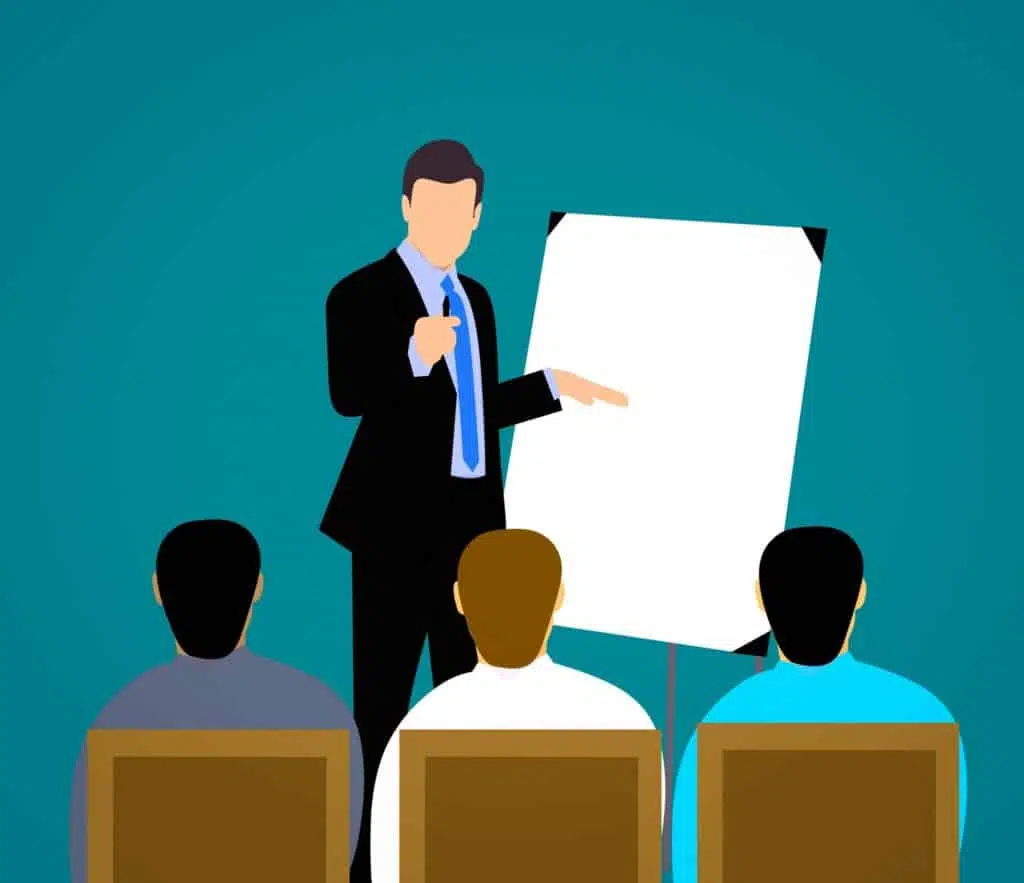In this guide, we will give you in-depth knowledge on how to become a performance coach. For a lot of reasons that we will soon discuss, the demand for performance coaches has grown exponentially in the last few years.
Drawing from my experience, companies have understood that in order to gain maximum revenues, they need to invest in and encourage the well-being of their employees. This, more than anything else, has led to a large demand for performance coaches. So, without further ado, let’s begin.
What is performance coaching?

As a corporate performance coach, you can work with these employees and facilitate their acceleration and growth both as people and as workers. You, as a corporate performance coach, can work with these employees and facilitate their acceleration and growth both as people and as workers. In simpler terms, a performance coach helps their clients reach their true and maximum potential.
What does a performance coach do?

A performance coach uses psychological tactics to help you overcome the obstacles that you are facing in fulfilling your maximum potential. A person’s performance at work may dip for a myriad of reasons; it could be emotional, something related to personal life, or anything else. Our team discovered that a personal performance coach digs deep, finds the reason behind the lack of activity, and then works around it to help their clients come out of the rut.
By guiding their clients through such negative emotions and energy, they help them be more active during work and not suffer from burnout and stress-related issues. As a performance coach, you will always be present with your clients, giving them honest feedback and helping them feel empowered enough to make game-changing professional decisions and take positive actions.
A good performance coach can help their clients in the following fields:
a) Become a solution miner:
People usually get stuck when solving problems. It is either the weight of their past failures that stops them from coming up with solutions, their lack of self-belief, or their tendency to leave tough things for higher-ups or those who they feel are more “qualified” to handle things like these.
Our team discovered that, by giving them that extra boost to their self-belief and capabilities, you, as a performance coach, can help them truly express themselves by mining for solutions and solving problems on their own.
b) Have a more fruitful professional life:
By making your clients come out of their shells and express themselves more, you will help them have more meaningful relationships professionally. Usually, people don’t network as much because of a lot of factors that are bogging them down, which in turn makes them isolate themselves.
Our team discovered that working with a life performance coach will help them grow in all areas of their professional lives and not miss out on networking opportunities.
c) Employee performance:
Just to wrap things up, if you are going to help your clients come out of their shells and have more fruitful relationships at work, it goes without saying that their overall job performance is going to improve with the help of employee performance coaching.
Why people hire a performance coach?

There are several reasons why people hire a performance coach:
a) Next level in their business:
When people want to get visible enough to be promoted, they want to gain an edge over the rest of their competition. The competition in the corporate world is very cutthroat, and everyone is out looking for their own benefit. Based on my first-hand experience, having business coaches will give them the competitive edge and the confidence to believe in themselves. As a performance coach, you will help them overcome any hurdles that are stopping them from excelling in their professional lives.
b) Start their own jobs:
It is always a daunting challenge when someone sets out on their own. To take this step, one needs to be mentally prepared for the amount of work that they will have to do. It can get very overwhelming for those who are not prepared to take this step.
As a performance coach, you can help them achieve their dreams of starting out on their own by getting them mentally prepared to take the next step.
More often than not, an individual’s performance at work may dip because of factors in other facets of their life. More often than not, it has been noted that people get affected by issues with their family or partners, which greatly deteriorates their work quality.
Based on my first-hand experience, a high-performance coach works with an individual and helps them cope with and come to terms with all the negative energy that is going on around them. They help them understand why those various issues are happening and what they can do about them.
D) Major Professional Setbacks:
One of the biggest deterrents for most people is facing a string of failures. Through our practical knowledge, most people don’t have the courage to bounce back from repeated failures, and that’s alright; we are all humans, after all.
At some point, people do start questioning their abilities, and that is always a killer. Once someone starts doubting themselves, that is when they will stop growing. As a performance coach, you can help people understand why they failed and make them realize that failure is part of their growth.
Through our practical knowledge, using psychology, you can help them embrace those failures and work around their doubts. This is one of the best ways that you can help your clients regain their confidence and realize their potential.
E) Long-Term Future Planning:
Most people are blissfully ignorant of what they want in the long run, and even if they are aware, they simply do not know how to reach those goals. Through our practical knowledge, as a performance coach, you can give them a strategy that they can follow to achieve their goals. You must keep them accountable to make sure that they are religiously following their goals and not being complacent about them.
Should you become a performance coach?

Our investigation demonstrated that if you are the kind of person who gets immense satisfaction from seeing someone gain unprecedented happiness and satisfaction from following your advice, then this is perfect for you.
Have you always been the person who helped their friends out in their professional lives and made them feel empowered and gain clarity? Does your vision of your own success lie in enabling others to find happiness? If yes, then you were born to be a performance coach.
What is the difference between life coaching and performance coaching?
Both of them are very similar in a lot of aspects. In both of them, you take your clients from a state where they have low self-esteem and are full of doubts to a state where they are empowered and happy.
However, the major difference between the two is the kind of clients that you are dealing with. Our investigation demonstrated that, while life coaching is all-encompassing, in sports performance coaching, you are mostly dealing with professionals.
What skills do you need to be a successful performance coach?

Being a performance coach will require you to have a specific skill set. Let’s go through all of them one by one:
A) A Grasp Of Human Psychology:
You don’t need to be Freud, but you definitely need a basic grasp of how the human mind works. Our findings show that most of your work will be about gliding through a client’s mind and seeing where they have set obstacles for themselves. In order to do this, you can’t afford to be completely ignorant about basic human psychology.
B) The Ability To Form Strategies:
A performance coach needs to be able to give actions to their clients with proper clarity. In order to do this, a performance coach must have the ability to form clearly defined and concise strategies. Our findings show that giving proper clarity is extremely critical because, without it, your clients will be lost.
C) Creating Rapport:
Our research indicates that an important element of being a performance coach is the connection and trust that you build with your clients. The best way to make this connection quickly is through rapport-building.
D) Being Honest With Your Feedback:
A performance coach’s main challenge lies in increasing the overall performance of their client. The only way that you can do so is by not BSing around. The only way you can improve someone’s performance is by putting a mirror in front of them. Our research indicates that you have to brutally and honestly tell them when they are not following certain actions; being “nice” is not going to help anyone. They are not paying you to be nice to them.
E) Being A Good Businessman:
Yes, being a good coach now includes being a good businessman as well. They are not mutually exclusive anymore. You can learn more about how a coaching business works by checking out my free webinar below. You can also check for transformational coaching skills for further help!
How much is a performance coach salary?

Based on our observations, Performance coaches are in high demand. Even mainstream culture has embraced the idea of performance coaches (Maggie Sif’s character in the hit Showtime series “Billions”). While it is true that some of these performance coaches get paid millions, here are some surprising stats for you. Our analysis revealed that, at Glassdoor, the average performance coach’s annual salary is just $36,000!
Why is that the case? Why is the average number so low?
The reason for that is simple: most performance coaches have no clue about the sheer amount of value that they can bring to the table. As a result, they just end up taking on anyone as a client. These clients don’t value the knowledge they are getting from them and constantly underpay for the coaching they are receiving. Also, check out talent coaches for further help!
These clients are called “low-ticket clients,” and it won’t be a stretch to say that performance coaches (and coaches in general) are suffering from an epidemic of low-ticket clients.
Most performance coaches think that they are not worthy of getting high-ticket clients, and that is simply not true. If you build a coaching business following my proven templates, then you can get an endless supply of coaching clients on autopilot.
Do you need performance coach certification?

I won’t lie; a coaching certification will definitely help you get your first clients. I am interested in giving you value, and I don’t want to give you a garbage answer like, “No, don’t do certification! It is a waste of your money!” If you plan on being an associated certified coach, you can definitely get an initial boost from certification, and there are plenty of places online where you can do so.
However, let me be very frank with you. Years down the line, that performance coaching certification won’t really matter that much. Our analysis revealed that the biggest way that a certified course can help you is by showing you how a coaching business works. That is definitely helpful.
Now, would you rather gain knowledge of how a business works and then spend the next few years meticulously planning and learning how to structure your business, or do you want to know what exact steps and templates you need to follow to create a perfect coaching business for free?
See, the main issue for us coaches is that we don’t have the luxury of time. As per our expertise, for every second and every minute that you are not spending on spreading your word, you are robbing one person on this planet of your coaching. That one person could have had their life changed after coming into contact with you.
Is that OK for you? Is it OK for you to spend years (like I did) learning all the little ins and outs of a coaching business? Or do you want to get your hands on proven coaching business blueprints that work every single time and start getting clients within a month?
Conclusion
In conclusion, becoming a performance coach requires a combination of knowledge, skills, and dedication. By following the principles and strategies outlined in this guide, individuals can embark on a rewarding journey to help others reach their full potential.
It is essential to continually enhance one’s own understanding of human behavior, performance psychology, and coaching techniques.
Developing effective communication and listening skills, along with empathy and compassion, is crucial for establishing a strong coach-client relationship.
Additionally, ongoing self-reflection and personal growth are vital to refining coaching practices and maintaining a high level of professionalism. By embracing these principles, aspiring performance coaches can make a positive impact on individuals and organizations, fostering growth, success, and fulfillment.
Frequently Asked Questions (FAQs)
What is performance coaching?
Performance coaching is a relatively new field of coaching that has been gaining popularity in recent years. It is a type of coaching that focuses on developing skills for high-performance work and business practices.
Performance coaching is a process-oriented intervention for people who are looking to achieve their goals and make changes in their lives.
What is the role of a performance coach?
A performance coach provides advice and support needed by the athlete, such as how to improve their skills or make better decisions.
Athletes typically hire a performance coach to help them achieve their best performance. They also offer advice on how to overcome any mental issues that might be holding them back from success.
Why do you need to be a performance coach?
A performance coach is a professional who is paid to help clients improve their performance. The profession of a performance coach has gained momentum in the last few years and is now becoming more and more prevalent in the workplace.
Performance coaches work with people from various backgrounds and at different levels. These professionals work with athletes, whole sports teams, employees struggling with mental health issues, and executives trying to improve their leadership skills among many others.
How much is a performance coach’s salary?
Performance coaches can charge anything from $300 an hour to up to $5000 an hour. A performance coach’s salary largely depends on the type of industry and the experience of the coach.
The right performance coach for you will depend on a range of factors such as your budget, what industry you are in, and what kind of coaching you need. If you are a beginner or a mid-level professional then a lower price may be more appropriate for you.
How to become a performance coach?
The first step is to figure out what your strengths are and what you are most passionate about. Once you have that figured out, then it’s time to find the right mentor or coach. It’s not easy being a performance coach, so this will be an important person in your life who can help you understand the industry better.
What may be the most important part of becoming a performance coach is making sure that you have strong interpersonal skills. You will need to be able to connect with people on many different levels, so it’s very important that you are able to do this efficiently.
Resources:
http://blog.evercoach.com/5-pillars-high-performance-coaching/#sthash.xb2iXuUa.dpbs

